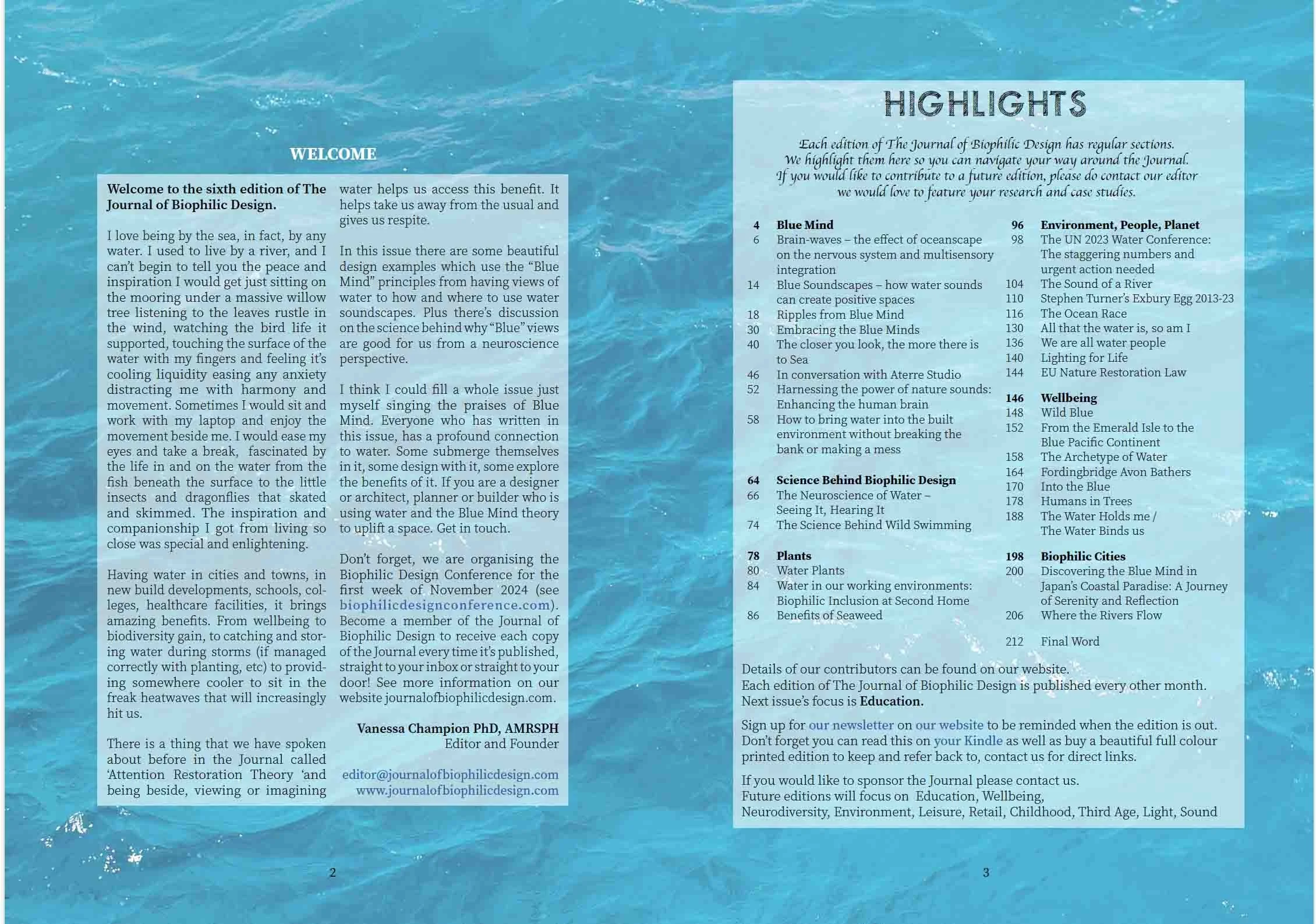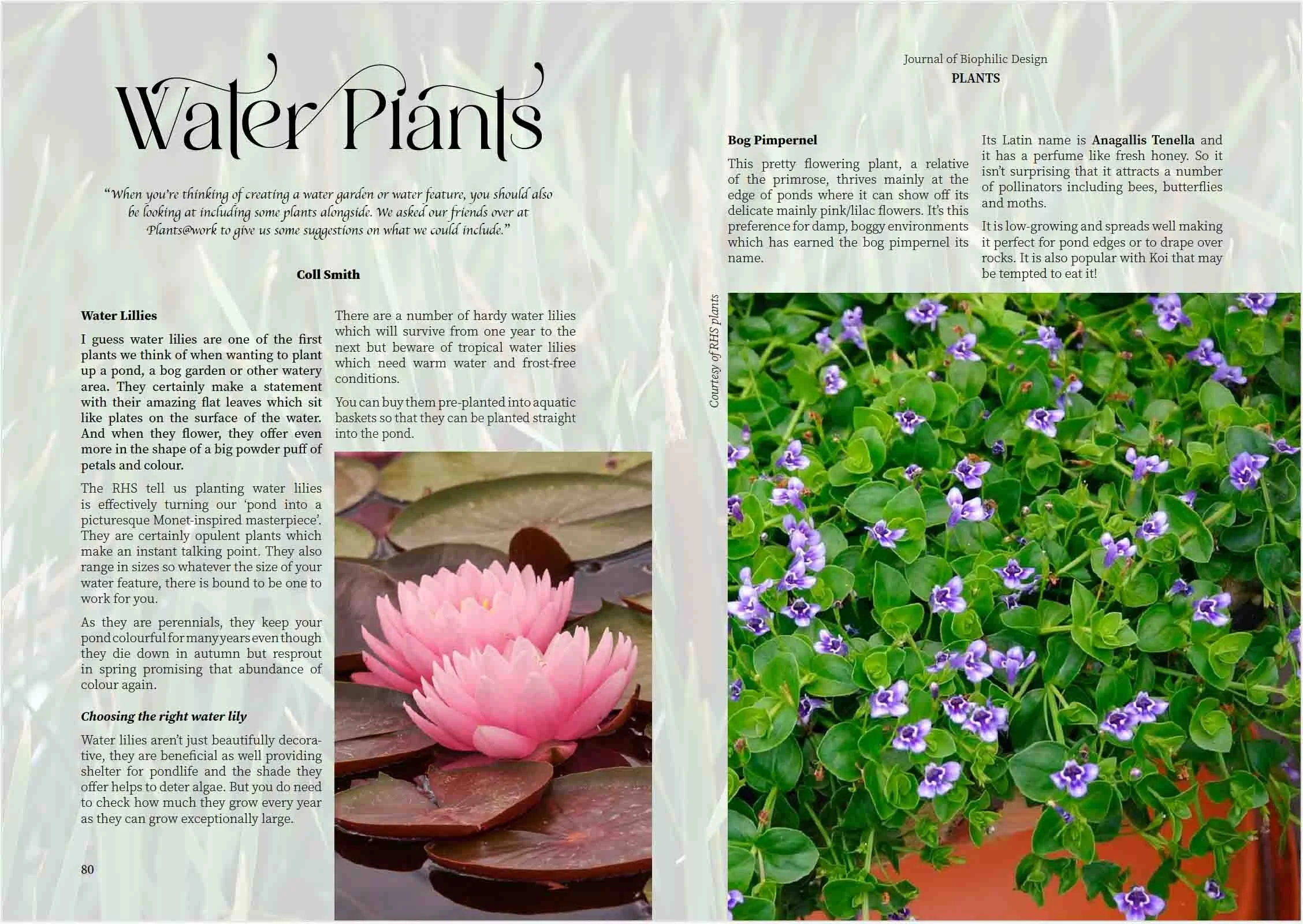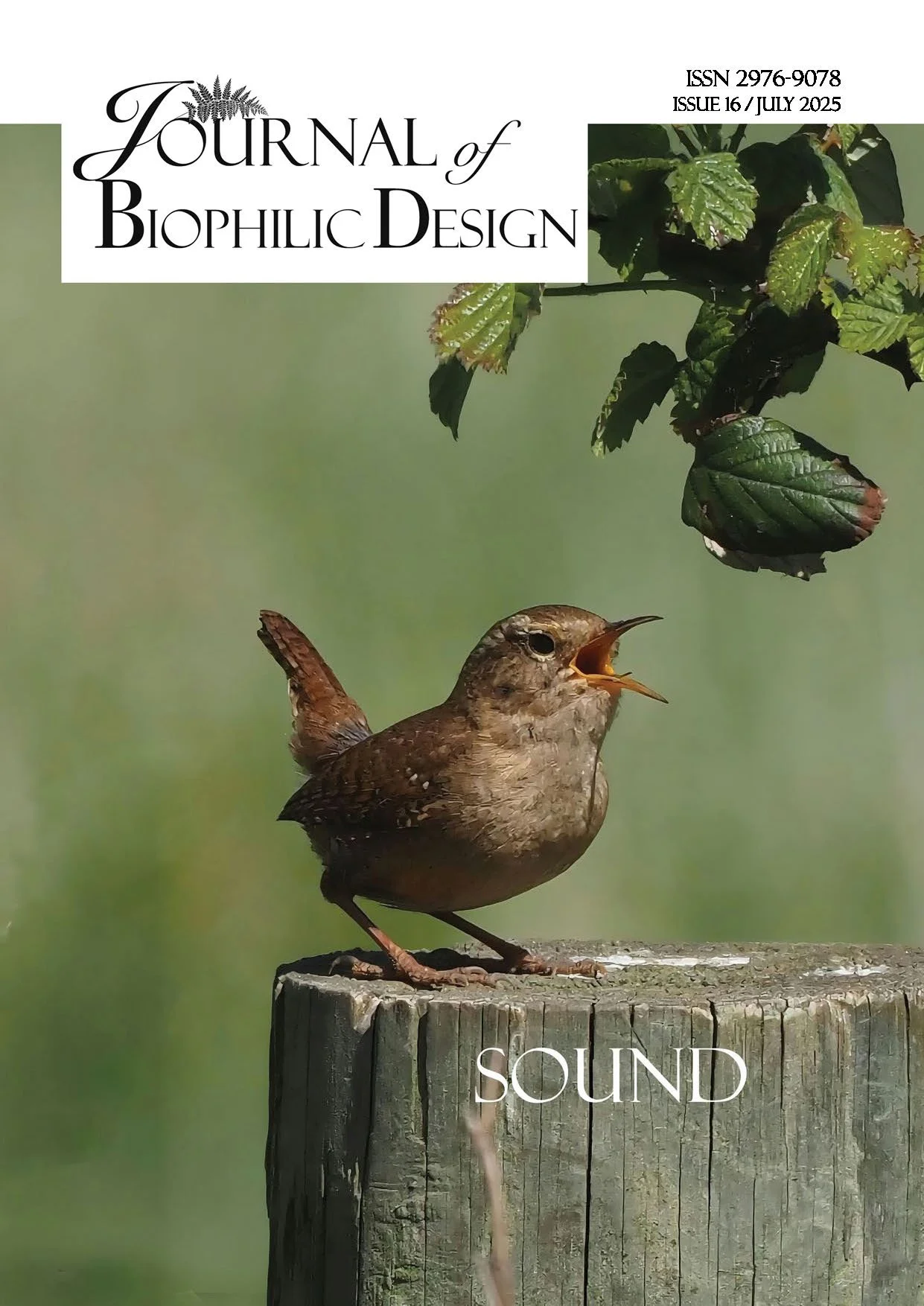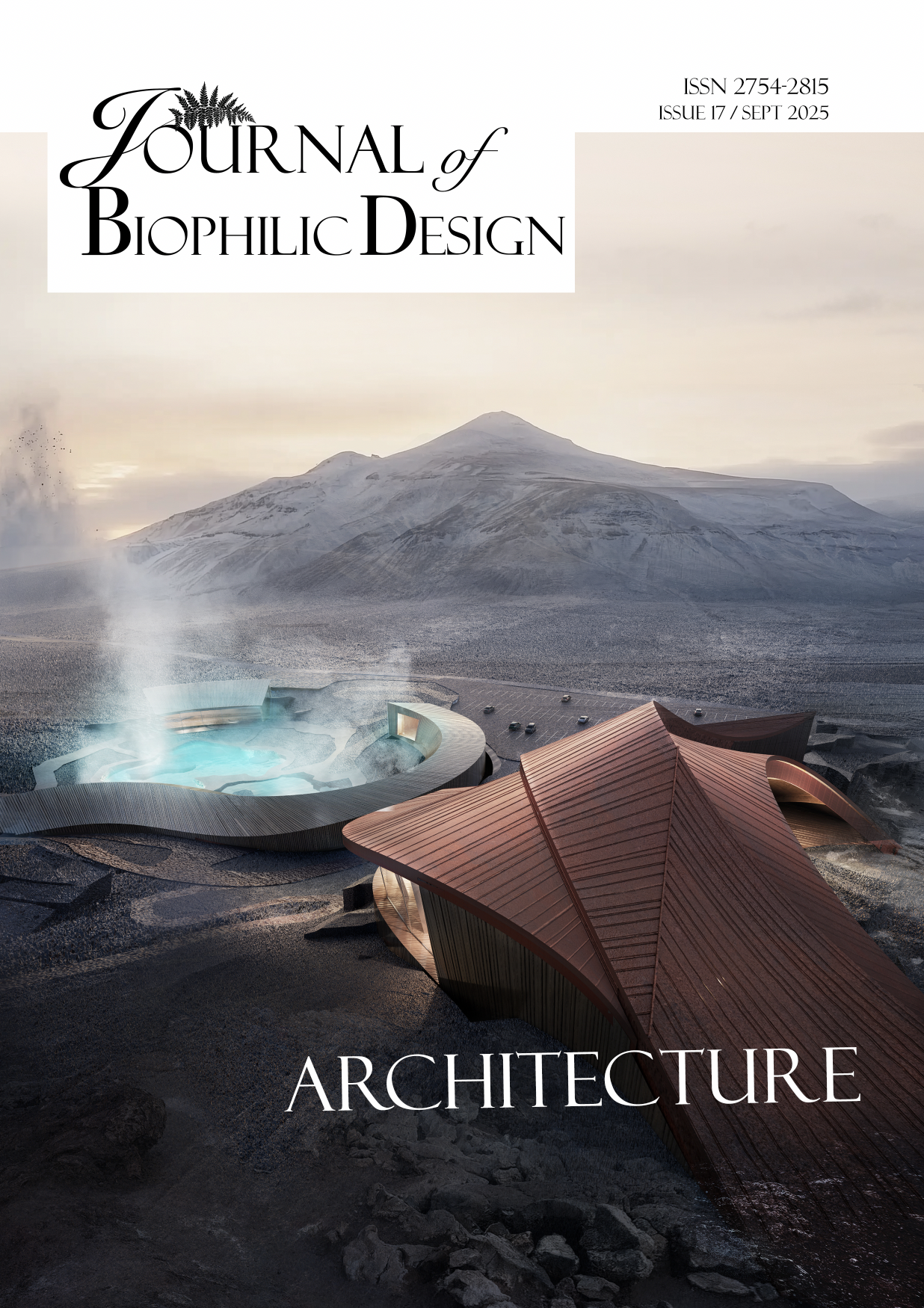Journal of Biophilic Design - Issue 6 - BLUE MIND - EBOOK VERSION over 210 pages
Journal of Biophilic Design - Issue 6 - BLUE MIND - EBOOK VERSION over 210 pages
Having water in cities and towns, in new build developments, schools, colleges, and healthcare facilities, brings amazing benefits: from wellbeing to providing somewhere cooler to sit in the freak heatwaves that will increasingly hit us. There is a thing that we have spoken about before in the Journal called ‘Attention Restoration Theory ‘, how having something else to focus our attention on for a short period gives us a mental boost, and so being beside, viewing or imagining water helps us access this benefit. It helps take us away from the usual and gives us respite. In this issue, we delve into the science behind why “Blue” views are good for us from a neuroscience perspective and there are some beautiful design examples which use the “Blue Mind” principles from having views of water to how and where to use water soundscapes.
“Humans are approximately 60% water; The brain, 73% water. So, it may come as no surprise that proximity to water sources, such as oceans has almost universal appeal. Whilst evolutionary biologists have long cited the link between human’s reliance on water for survival as an explanation for our almost universal connection to oceanscapes, modern developments in neuroscience and multisensory integration are providing further opportunities to understand the potential pathways between our great oceans and human,” as Dr Sophie Schuller outlines in our opening article.
Evan Benway of Moodsoonic describes how water sounds can create positive spaces “There’s something inherently enjoyable about the crashing of waves on a beach, the rhythmic patter of raindrops on leaves, the gurgling of a gentle stream or the rush of a cascading waterfall. The sounds of water are some of the most popular and powerful sounds in the world. But why? And how can we use biophilic design to harness that power to improve people’s health indoors?”
Plus in this issue case studies, personal stories, the science behind water connection, the importance of water, rivers, seas in our ecosystem, how “Blue” positively impacts our wellbeing, how a biophilically designed urban environment which includes clean and well-managed water-frontages can have a positive impact on city economies. We look at the Ocean Race, harnessing the power of nature sounds, the science behind wild swimming, Japan’s coastal serenity, how communities can lobby for the right to access and enjoy rivers and wild water spaces, how we can bring water in the built environment without breaking the bank or making a mess, how Rivers in cities can have a positive impact on people, planet and profit. Plus lots more. Over 210 pages full colour inspiration.
Did you know you have access to this digital issue for FREE if you are already a member of the Journal of Biophilic Design https://journalofbiophilicdesign.com/subscribe-as-a-member
Having water in cities and towns, in new build developments, schools, colleges, healthcare facilities, it brings amazing benefits. From wellbeing to water during storms (if managed correctly with planting, etc) to providing somewhere cooler to sit in the freak heatwaves that will increasingly hit us. There is a thing that we have spoken about before in the Journal called ‘Attention Restoration Theory ‘and being beside, viewing or imagining water helps us access this benefit. It helps take us away from the usual and gives us respite. In this issue we delve into the science behind why “Blue” views are good for us from a neuroscience perspective and there are some beautiful design examples which use the “Blue Mind” principles from having views of water to how and where to use water soundscapes.
“Humans are approximately 60% water; The brain, 73% water. So, it may come as no surprise that proximity to water sources, such as oceans has almost universal appeal. Whilst evolutionary biologists have long cited the link between human’s reliance on water for survival as an explanation for our almost universal connection to oceanscapes, modern developments in neuroscience and multisensory integration are providing further opportunities to understand the potential pathways between our great oceans and human,” as Dr Sophie Schuller outlines in our opening article.
Evan Benway of Moodsoonic describes how water sounds can create positive spaces “There’s something inherently enjoyable about the crashing of waves on a beach, the rhythmic patter of raindrops on leaves, the gurgling of a gentle stream or the rush of a cascading waterfall. The sounds of water are some of the most popular and powerful sounds in the world. But why? And how can we use biophilic design to harness that power to improve people’s health indoors?”
Plus in this issue case studies, personal stories, science behind water connection, the importance of water, rivers, seas in our eco system, how “Blue” positively impacts our wellbeing, how a biophilically designed urban environment which includes clean and well-managed water-frontages can have a positive impact on city economies. We look at the Ocean Race, harnessing the power of nature sounds, the science behind wild swimming, Japan’s coastal serenity, how communities can lobby for the right to access and enjoy rivers and wild water spaces, how we cna bring water in the built environment without breaking the bank or making a mess, how Rivers in cities can have a positive impact on people, planet and profit. Plus lots more. Over 210 pages full colour inspiration.


























